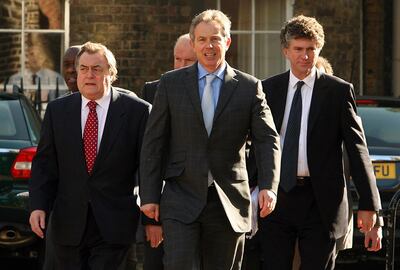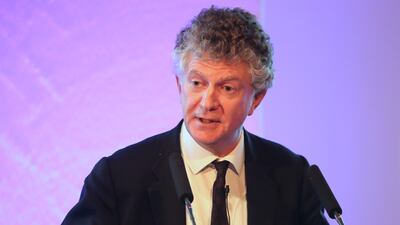Britain’s new national security adviser argued that the West should negotiate with ISIS extremists to bring peace to the Middle East.
Jonathan Powell, who was former prime minister Tony Blair’s chief of staff, was a leading player in bringing a peace agreement to Northern Ireland after he engaged in long-running talks with the Provisional IRA, a terrorist organisation.
But the man appointed as Prime Minister Keir Starmer’s senior adviser on shaping Britain’s foreign policy, stated in 2014, when ISIS was at the height of its terrorism campaign, the need to engage in diplomacy.
“While ISIS may not want to talk to us at the moment, we need to start building a channel to them, as we did with the IRA in 1972, so we can communicate,” he wrote in the Guardian. “At some stage, we will need to negotiate with violent Islamic extremism, whether in this form or another one, if their ideas continue to have political support and we want to find a lasting solution to conflict in the region.”
ISIS was largely defeated by a western-led military operation by 2019.
Mr Powell was also appointed by prime minister David Cameron in 2014 to be his special envoy to Libya with orders to help resolve the civil war.
His focus in his new role will be to build relationships with Donald Trump’s administration after January 2025.
Mr Powell, chief of staff for 10 years under Mr Blair, was welcomed by political figures as an “excellent choice” at a time when the world is experiencing major conflicts.
But others have raised concerns that as a key figure in Mr Blair's cabinet he was part of the failed British role in the Iraq occupation from 2003.
Mr Starmer said Mr Powell's experience in helping to negotiate the Good Friday Agreement and his work on “some of the world’s most complex conflicts” meant he was an ideal fit to advise the government on global challenges.
Alistair Campbell, Mr Blair’s former director of communications who worked closely alongside Mr Powell in Downing Street, described the move as an “excellent appointment”.
“Jonathan is one of the most impressive, dedicated, hardworking and clever public service professionals I have ever worked with,” he wrote on social media network X. “It shows Keir Starmer is serious about the scale of foreign policy challenge. He could not have anyone better alongside him at such a dangerous time for the world.”
He added that Mr Powell was a “total grown up” who would avoid the “power games” sometimes played out in government.
But while Mr Powell might have been “a great political negotiator” as he demonstrated in the Northern Ireland peace process, “he failed to exercise the necessary level of strategic leadership” in the Iraq War, said Brig Ben Barry, of the International Institute for Strategic Studies think tank.
“He was chief of staff when Blair was in charge of the Iraq War and the British contribution there failed,” Brig Barry told The National.
“The Iraq inquiry (Chilcot) report lays out how the war was inadequately led and managed, including very poor co-ordination of all the different national security actors, so Mr Powell ought to explain his performance with regard to the Iraq War and the Afghanistan war, too.”
Mr Powell is currently chief executive of charity Inter Mediate, which works to resolve international conflicts.
“Jonathan has devoted his career to protecting the interests of the country, having served for 17 years as a diplomat in the Foreign Office and 10 years as chief of staff in No 10, and I am delighted to appoint him to this important role,” Mr Starmer said.
“Together with his experience helping to negotiate the [Good Friday] Agreement and work on some of the world’s most complex conflicts, he is uniquely qualified to advise the government on tackling the challenges ahead and engage with counterparts across the globe to protect and advance UK interests.”

Mr Powell said the job was vital at a time when “national security, international relations and domestic policies are so interconnected”.
He previously warned the international sanctions imposed on Russia in response to the invasion of Ukraine would fail to end the conflict.
“I'm not convinced that sanctions do what we think they do, I'm not sure they ever have done what we thought and I not sure the Russia sanctions will make much impression on [Russian President Vladimir] Putin at all,” he said in 2022.
“They make us feel a bit better about things and make life worse for the Russian people. In Iraq, they made life worse for the Iraqi people and those near Saddam found a way around it.”
Charles Grant, of the Centre for European Reform think tank, said that Mr Powell’s “diplomatic skills are proven” in helping cement the 1998 Good Friday Agreement.
“He is a convinced pro-European who will, I think, understand the importance of closer EU-UK ties,” he added.
In the light of Donald Trump’s election he made the point that Mr Powell was also pro-American, being a “strong Atlanticist”.

